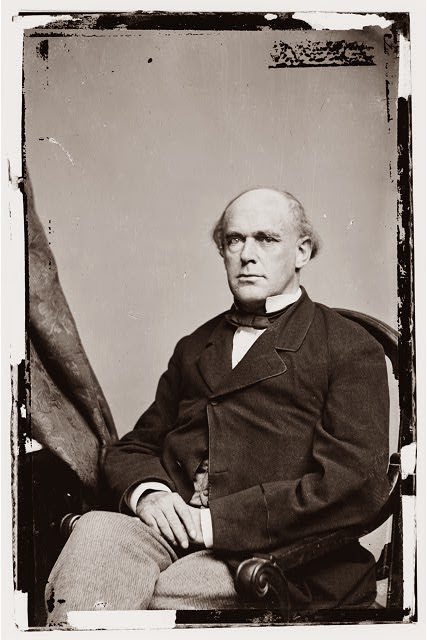There won’t be a new episode this weekend. Rich is going hiking.

BELMONT
In which we discuss (among other things) the Battle of Belmont, which took place on November 7, 1861.
Our book recommendation for this episode is The Battle of Belmont: Grant Strikes South by Nathaniel Cheairs Hughes, Jr.
“In this definitive study of U.S. Grant’s first Civil War battle, Nathaniel Hughes has done for Belmont what Wiley Sword did for Shiloh and Peter Cozzens for Stones River. This is a lively account, as well researched as it is well written.” ~ James I. Robertson
Listen to Episode 82: Belmont
MY OLD KENTUCKY HOME
In which we set the stage for the Battle of Belmont (Nov. 7, 1861) by discussing Kentucky’s self-proclaimed neutrality early in the Civil War, and how the Confederate move to seize Columbus, KY pushed the Bluegrass State off the fence and into the Union camp.
Our book recommendation for this episode is Decision in the Heartland: The Civil War in the West by Steven E. Woodworth.
“Woodworth presents with precision and clarity a comprehensive overview of the war in the West. Penned with a unique level of intimacy and a highly focused perspective based on years of research and analysis, the book weaves a captivating narrative and is a delightfully good read.” ~ Journal of American History
Listen to Episode 81: MyOldKentuckyHome
ULYSSES S. GRANT (Part the Second)
In which we continue with our look at Grant’s life story, bringing him up to speed with the podcast timeline.
Our book recommendation for this episode is U.S. Grant: American Hero, American Myth by Joan Waugh.
“Joan Waugh’s eagerly awaited and important book on Grant is original and provocative. She writes with an astute perspective on how each contextual stop along the way in her history of Grant’s memory is really all about the politics of that particular moment. This book will make a lasting mark in Civil War history.” ~ David Blight
Listen to Episode 80: UlyssesGrantPartSecond
ULYSSES S. GRANT (Part the First)
In which we set out to tell U.S. Grant’s life story and bring it up to speed with the point where we find ourselves on the podcast timeline- November, 1861.
Our book recommendation for this episode is Ulysses S. Grant: Triumph over Adversity, 1822-1865 by Brooks D. Simpson.
“Brooks Simpson has crafted a superb military biography. His Ulysses S. Grant is exhaustively researched, impressively judicious, and eminently readable, giving us an objective and penetrating look at an important and enigmatic American, warts and all. Simpson’s book is destined to stand as our generation’s definitive study of Grant. If your bookshelf has space for only one Grant biography, this is the one that should be there.” ~ Gordon C. Rhea
Listen to Episode 79: UlyssesGrantPartFirst
REHEARSAL FOR RECONSTRUCTION (Part the Second)
 |
| Salmon Portland Chase (1808-1873) |
REHEARSAL FOR RECONSTRUCTION (Part the First)
 |
| Former slaves of Confederate Brigadier General Thomas Drayton photographed on Hilton Head Island, May 1862. |
In which we set the stage for a discussion of the Port Royal Experiment, which took place on South Carolina’s Sea Islands and which many people view as a “rehearsal for reconstruction.”
Our book recommendation for this episode is Freedom National: The Destruction of Slavery in America, 1861-1865 by James Oakes.
“Was Lincoln really a ‘Reluctant Emancipator’? Freedom National answers that question eloquently and fully. Oakes argues that Lincoln, from the moment of his inauguration, began using every political and military means at his disposal to wipe out slavery forever.” ~ Howell Raines, Washington Post
Listen to Episode 77: PortRoyalExperiment
PORT ROYAL SOUND
In which we look at the Battle of Port Royal Sound, South Carolina (November 7, 1861).
Our book recommendation for this episode is Now for the Contest: Coastal & Oceanic Naval Operations in the Civil War by William H. Roberts.
“Now for the Contest tells the story of the Civil War at sea in the context of three campaigns: the blockade of the southern coast, the raiding of Union commerce, and the projection of power ashore. The book also examines how both sides mobilized and employed their resources for a war that proved to be of unprecedented intensity and duration. For both antagonists, the conduct of the naval war was complicated by rapid technological change, as steam power, metal armor, and more powerful ordnance sparked experiment and innovation both in naval construction and tactics.”
Listen to Episode 76: PortRoyalSound
THE ORDEAL OF GENERAL STONE (Part the Second)
In which we continue our discussion of the ordeal of Brigadier General Charles P. Stone.
Our book recommendation for this episode is Over Lincoln’s Shoulder: The Committee on the Conduct of the War by Bruce Tap.
“Tap’s case is one worth making. He argues that the Joint Committee on the Conduct of the War produced little good and some harm, polarizing politicians against professional soldiers, limiting strategic options, and inflating the reputations of military incompetents. These errors, he shows, stemmed from ignorance of military art and from partisanship. Although his conclusions will raise some eyebrows, he provides good evidence for his case. A solid and readable old-fashioned political history, this book will correct our image of the relationship between Republicans and the army in the Civil War.” ~ Mark E. Neely, Jr.
Listen to Episode 75: GeneralStonePartSecond